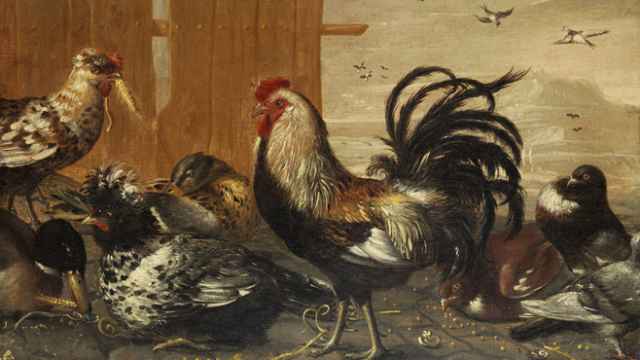Пóдлый: base, low, vile
Here's a new bit of folk etymology going around: Way back in some undefined olden days of Russia, executions were performed in the winter by tying someone to a pole and pouring water over him until he was covered with a thick layer of ice and froze to death. The guy who poured the water was the подлец (scoundrel, here supposedly from подливать воду — to pour on water), and the guy who froze to death was the мерзавец (scum, here from мёрзнуть — to freeze).
Now I'm no specialist in forms of execution, but slowly freezing to death is a relatively peaceful way to go — compared to being impaled, drawn and quartered, hanged or shot, that is — and not practiced in Russia or anywhere else that I can find. (Specialists in torture and execution are welcome to correct me.) As for the etymologies: specialists say that the origins of подлец (scoundrel) are not quite clear, but под means under, and in the 18th century подлый was someone of the underclass. So подлец is someone base, vile: a low-life.
Now мерзавец is a fascinating word. It is connected with мёрзнуть (to shake with cold), perhaps because evil is cold-hearted? Or makes your blood run cold when you see it? Today it means an immoral person, but ages ago мерзавец — also мерзавчик — was the smallest amount of vodka sold, which was 1/200th of a bucket. I guess that when you toss it back, you shudder.
Now how cool is that? (No pun intended.)
Other words for not-nice people also have interesting histories. For example: безобразник (hellion, scamp) comes from безобразие, which is easily taken apart as без (without) образ (shape, form, image). At first this simply meant "without form," and then came to mean "ugliness," and finally came to rest at "indecent behavior" — which is also an absence of form, in a way. Безобразник seems to have been stronger in meaning a century ago: Шли по бульвару три какие-то безобразника и взяли девушку. (Three ruffians were walking along the boulevard when they grabbed a girl and made off with her.) Now безобразник can be used in some contexts as almost a word of affection: Мои маленькие безобразники! (My little mischief-makers!)
Another strong word with a convoluted history is бесшабашный. It's also easily parsed as без шабата (without the Sabbath). It appears to have first meant someone who did not respect the religious dictum to rest on the Sabbath. Бесшабашная работа, a fairly obscure phrase these days, means "work without a break." Now бесшабашный is someone reckless and wild — a daredevil, someone with a devil-may-care attitude. Like this guy: Петя — бесшабашный, любил компании, дома не ночевал, имел две жены. (Petya was a wild guy, who loved hanging out with his friends, didn't sleep at home, and had two wives.)
Finally, there's гад, originally — amphibian, now either something creepy-crawly, or someone who gives you the creeps. Here's when it's a creature that crawls the earth: Туман расточился, оставив болотный запах, а гады исчезли (The mist dissipated leaving a boggy odor, and all the reptiles disappeared.) Here's when it's a creep: Револьвер спёрли сегодня… Вот гады. (My gun was ripped off today… what a bunch of creeps.) And here's when you can't tell: Русская зима не в силах заморозить иноземных гадов. (The Russian winter can't freeze those foreign slimebags.)
I think I'm offended.
Michele A. Berdy, a Moscow-based translator and interpreter, is author of "The Russian Word's Worth" (Glas), a collection of her columns.
A Message from The Moscow Times:
Dear readers,
We are facing unprecedented challenges. Russia's Prosecutor General's Office has designated The Moscow Times as an "undesirable" organization, criminalizing our work and putting our staff at risk of prosecution. This follows our earlier unjust labeling as a "foreign agent."
These actions are direct attempts to silence independent journalism in Russia. The authorities claim our work "discredits the decisions of the Russian leadership." We see things differently: we strive to provide accurate, unbiased reporting on Russia.
We, the journalists of The Moscow Times, refuse to be silenced. But to continue our work, we need your help.
Your support, no matter how small, makes a world of difference. If you can, please support us monthly starting from just $2. It's quick to set up, and every contribution makes a significant impact.
By supporting The Moscow Times, you're defending open, independent journalism in the face of repression. Thank you for standing with us.
Remind me later.








